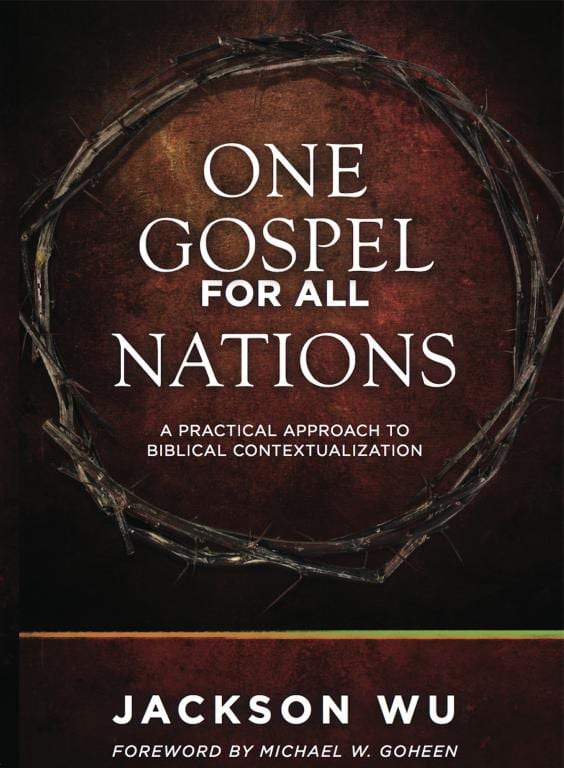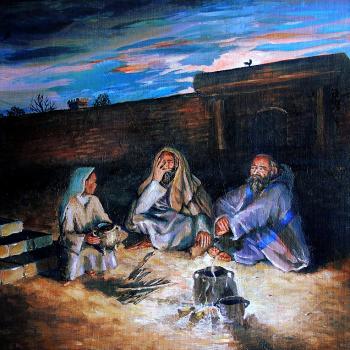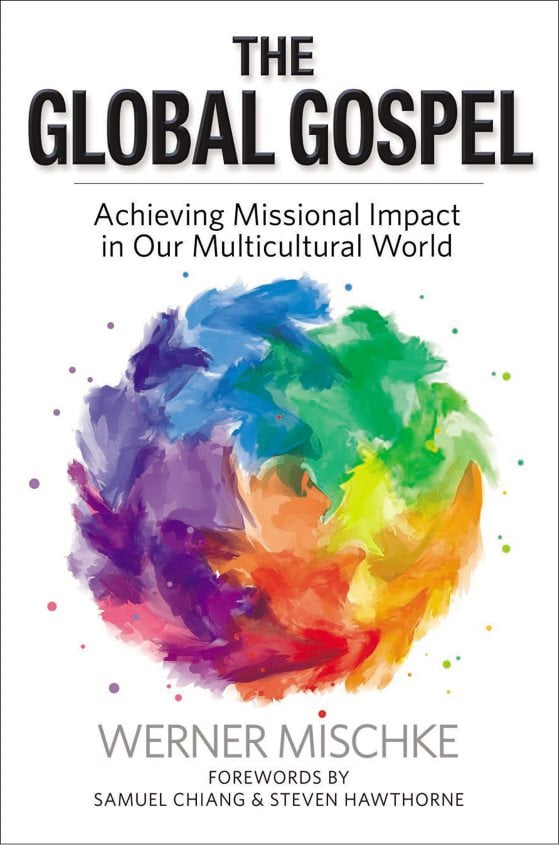At the recent T4G/TGC conference, Greg Gilbert made an astonishing claim (and misrepresentation) concerning the gospel as understood by people like Scot McKnight, Matthew Bates, N. T. Wright, and others. Both Bates and McKnight have offered brief replies.
Reading the interaction, I recalled my critique of Greg Gilbert in One Gospel for All Nations. My words are still applicable and, I hope, help those trying to sort out what is central to the gospel. In this and the next post, I draw from my book to summarize my response to Gilbert’s message.
What exactly is the Gospel?
In recent years countless books, articles, and blogs have debated the question, “What is the gospel?” Trevin Wax has compiled an extensive collection of “gospel definitions” as articulated by various Christians throughout history. There seems to be as much diversity as there is agreement when defining what exactly the gospel is. He broadly summarizes that Christian gospel presentations often recount the story of the individual believer, Jesus, and of creation.

Greg Gilbert challenges what he calls “three substitute gospels.” He claims, “‘Jesus is Lord’ is not the gospel,” the paradigm “‘creation-fall-redemption-consummation’ is not the gospel,” and “cultural transformation is not the gospel.” He adds, “It should be obvious by now that to say simply that ‘Jesus is Lord’ is really not good news at all if we don’t explain how Jesus is not just Lord but also Savior.”
Problematically, he presumes that those who preach the gospel as Jesus’ kingship separate his being Lord from his being Savior, perhaps even “mak[ing] their center something other than the cross.” As a result, Gilbert denies other emphases in order to isolate one strand of thought—the individual sinner in need of forgiveness by the God who judges in wrath.
For many people, the “gospel” is virtually synonymous with justification. In the Gospel Coalition’s book The Gospel as Center, contributors use words like “justification” and “righteous(ness)” at least 385 times. More specifically, a search of the book shows approximately 185 instances of the words “justify,” “justified,” and “justification.” “Righteous(ness)” is used no less than 200 times. Also, the terms “impute(d)” and “imputation” appear about 27 times. Not surprisingly, Romans 3 alone is cited 25 times.
A Royal Gospel
In The King Jesus Gospel, Scot McKnight contrasts yet complements the views already mentioned. He calls such presentations soterian in that they reduce the gospel to a message about how individuals get saved. While not denying the importance of individual salvation, McKnight responds, “Who wants an irreducible minimum gospel? . . . I want the full, biblical gospel.” He suggests that traditional evangelicals “skip from Genesis 3 to Romans 3” when trying to understand and communicate the gospel.
McKnight argues that the gospel is the story of how Jesus brings about “the resolution and fulfillment of Israel’s Story and promises,” culminating in the kingship of Christ over Israel and the world.
Rather than dichotomizing “gospel” from “salvation,” McKnight sees individual salvation as one important aspect of the gospel. He rejects formulations that separate Jesus as Christ/Lord and Jesus as Savior. McKnight attempts to help readers “relearn how to frame the gospel as the apostles did.” Accordingly, he says the apostles frame their gospel presentation, not around an atonement theory but more precisely by “the story of Israel.”
We can easily see some truth in each of the perspectives mentioned above. It is more difficult to see where exactly the problem lies within the gospel debate. It is not so much what is affirmed that is mistaken. Instead, the tension seems to be found in what particular views omit or deemphasize. It isn’t easy to debate points of emphasis or to compare one metaphor against another. This is especially true when one camp does not overtly deny another’s view.
The Gospel is the First Casualty
Sadly, in this kind of debate, the first casualty might be the gospel itself. Someone could get the sense that Christians are preaching different messages. In fact, the differences concern points of emphasis. No one wants to preach a “reductionistic” gospel. In other words, we never want to choose one aspect of the gospel at the expense of another.
This is exactly what can happen when we oversimplify the message by forgetting the narrative biblical context from which it comes. How can we present a gospel that is robust and not reduced?
Theologians and missionaries must constantly decide what themes should be highlighted and how to relate main ideas to their contexts. Westerners are generally prone to either-or thinking. When this enters the church, people easily confuse what is true/false with what is primary/ secondary. We need a both-and perspective.

An analogy illustrates the problem we face. Suppose someone asks, “Tell me about your body.” In reply, one might say, “Well, it has four chambers that are full of blood. One half pumps blood through veins. The other half uses arteries.” That would be accurate in a strict though peculiar sense. Depending on one’s perspective, the heart both is and is not the body. The heart is an essential part of the body, yet it in no way constitutes the whole of what is referred to when one speaks of a body.
Still, such a reply does not really answer what presumably is really being asked. One should describe the body from a broader perspective rather than just one part of it, regardless of how crucial that individual part is to the whole.
Is the ‘Plan of Salvation’ the gospel
Similarly, we can ask, “Is the ‘Plan of Salvation’ the gospel?” To say whether the Plan of Salvation is or is not the gospel—either way—requires a bit of unavoidable linguistic gymnastics. Just as the heart “is” the body, so too is the Plan of Salvation. Yet, it is not the gospel in the same way that the heart is not equivalent to the body. Most people would not talk as if the heart itself were the whole of the body.
Perhaps it is best to say the Plan of Salvation is not the whole gospel. If people only explain “how one is saved,” they do not proclaim the full gospel as the disciples preached it.
“How” one gets saved can easily reduce the gospel to issues of mechanics. One can lose the whole in view of the parts, forsaking the proverbial forest for the tree. The gospel also answers other questions besides “how” an individual gets saved. The gospel mainly says something about God himself. It is an announcement about who God is and what he does in history.
That said, if we do not highlight salvation, which is the significance of the announcement, then we also have not preached the gospel. After all, saying that “Jesus is King” to someone who knows neither who Jesus is nor the role of a king would hardly be speaking “good news.” It would be akin to claiming “Fred 当老师” to someone who only speaks English. This statement is simply garbled news, being neither good nor bad.
Implicit within any such announcement is that the listener understands the significance. Problems come when we only talk about a single aspect of significance (e.g., human salvation), skipping the fundamental announcement of who Jesus is and the fact that God’s glory will permeate his new creation. Otherwise, we de facto make the gospel-centered on humans. Along this line of thinking, once one gets “saved,” there is not much left to say that compares in importance. Naturally, this will not bode well for discipleship; that is, the rest of the Christian life after conversion.
A hypothetical scenario may explain why it matters whether one skips the announcement and goes directly to salvation. Perhaps someone might say, “That couple just married. They slept together, and now she is pregnant!”
What happens if we overlook the first part? We are left hearing only about a function or activity robbed of its proper relational context that gives significance to the benefits/results. Announcing the pregnancy apart from the first part may even sound unbelievable or scandalous, depending on one’s context (e.g., Mary’s pregnancy with Jesus). While intimacy and children are wonderful blessings of marriage, they still do not make up the whole of what it means to be married.
This pose is adapted from One Gospel for All Nations, pp. 30–33. See the book for full documentation of citations and footnotes.
For a Portuguese translation of this post, click here.











